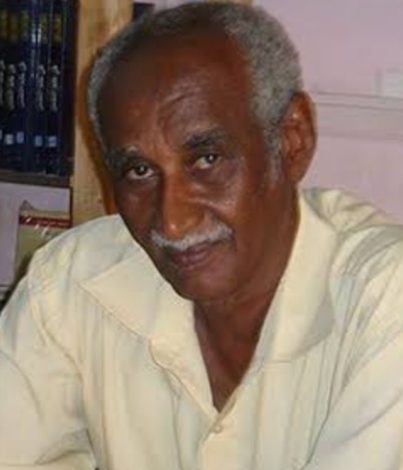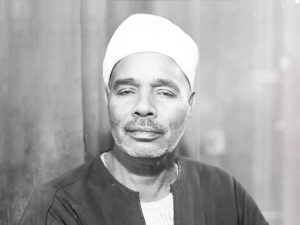The 100th Anniversary of the First Arabic Book on Folklore, ‘Arabic in Sudan’ (1923–2023) (2-2)

Sudan Events – Majzoub Aidarous
It is clear from the book Arabic in Sudan that studying the colloquial language is of great benefit in solving the problems and mysteries that occur in ancient poetry. Also, knowing the customs familiar to the people of Sudan now helps us in historical research into morals and customs. If it is true to say that a man is immortal in his descendants, then the morals and customs of nations. It is immortal among the peoples and kingdoms that succeed it. A nation that desires progress and seeks advancement in the paths of civilization must first know itself, and the best evidence of a people’s morals and mental temperament is language, customs, proverbs, and other traditional literature. For these reasons, I welcome the book “Arabic in Sudan,” and I hope that it will gain acceptance among the people of Sudan. This country, and it would be better if other writers followed in the footsteps of the author so that the scope of such topics would expand
Introduction to the author:
Sheikh Abdullah Abdul Rahman Al-Amin Al-Darir was born in 1890 AD and died in 1964 AD. His works have been discussed by a number of critics and scholars, including Dr. Abdul Majeed Abdeen and Dr. Abdo Badawi and his poems were published in a number of newspapers and magazines in Sudan and Egypt. Sheikh Abdullah belongs to the Al-Darir family, a family from which scholars, jurists, and politicians stand out to this day. His grandfather, Sheikh Al-Amin Al-Darir, was the distinguished scholar of Sudan in the Turkish/Egyptian era (1821 – 1885). Sheikh Al-Amin published his poems in the Egyptian Gazette and in Al-Jawaib, for which he won one of the prizes. . This sheikh had an opposition position to the Mahdia. He almost paid with his life for this position when Imam Muhammad Ahmad al-Mahdi conquered Khartoum, had his son Ali, one of the Mahdia princes, not rushed to extend his protection over his father, who soon died in the year 1885 AD.
Sheikh Abdullah Abdul Rahman began composing poetry while he was a student at Gordon College, where he graduated from the Corps Department, which was preparing teachers. He worked as a teacher in primary and middle schools and Gordon College. In Egypt, a number of his poems were published in Al-Resala and Al-Balagh magazine and a number of Egyptian newspapers that celebrated his poems on political and religious occasions, especially regarding issues of the Arab world and the Islamic world.
Sheikh Abdullah Abdul Rahman Al-Amin Al-Darir has two printed collections, the first of which is Al-Fajr Al-Sadiq, which is well-known to students of Sudanese literature in the first half of the twentieth century AD. The second is the Diwan of Arabism, and those responsible for culture in Egypt took care to print and publish it because it included poems calling for Arab unity and praising President Gamal Abdel Nasser in his battles against colonialism during and after the Suez Crisis – what was known as the tripartite aggression against Egypt (England, France, and Israel). The Diwan of Arabism was prominent in his response to The orientations of the Egyptian state at that time.
Abdullah Abdul Rahman is also the elder brother of Sheikh Ali Abdul Rahman Al-Amin Al-Darir, and both of them were founders of the Brothers Party in Sudan (1944). The Brothers Party played a major role in the federal movement calling for the unity of the Nile Valley (Egypt and Sudan). Both of them are believers in Arab unity and Sudan’s fateful connection to the Arab world. And in Arab culture. Sheikh Ali contributed to drawing attention to the importance of the Book of Classes by Muhammad al-Nur ibn Daifallah, which is an essential reference in documenting Sudanese life from the fifteenth century until the beginning of the nineteenth century AD.
The book Arabic in Sudan is considered one of the first awareness of Sudan’s connection to Arabism, and this is what prompted Professor Yahya Al-Fadhli, Minister of Education, to reprint the book in 1967 AD, and he said in his introduction to the second edition (This book was written by our great teacher, the late Sheikh Abdullah Abdul Rahman, the poet of Arabism, in 1922, and there was no awareness The Arab world has reached the stage it has reached now
The book Arabic in Sudan draws attention to the abundance of Arabic heritage books that Sheikh Abdullah Abdul Rahman reviewed, his abundant stock of old and new Arabic poetry, and his extensive knowledge of Sudanese popular poetry in its various environments. In addition to his upbringing in the family of the blind Al-Amin, the distinguished scholar of Sudan, his presence in Omdurman, which was the capital of the Mahdist state, and part of the triangular capital during the era of dual rule (1898-1956), and included all the tribes of Sudan, in addition to that, his work in teaching and his movement between Suakin in the Far East. Sudan and White in its west, and Hantoub and Madani in its center, close to the poetry of Butana, and his knowledge of the poets of the shawl, Kud al-Farash, and other poets throughout the Sudanese geography.
The book did not receive sufficient attention from some researchers, even though the issue of identity occupies a large space in the Sudanese conflict arena, politically and culturally. There is no clearer evidence of the reality of this conflict within the Sudanese arena than what the British colonial authority became aware of when it enacted in 1922 the Law of the Closed Areas, which are areas that were intended to be colonized. Not to interact with the influences of Arab culture, and to later become a focus of conflicts, disputes, and civil wars against the national authority after independence. There was much talk about the marginalization of these regions, and this is something that colonialism wanted and planned with cunning and malicious intelligence. The policies of military dictatorial regimes contributed to deepening the gap between the center, the north, and other regions. The elites in these regions contributed to fueling the spirit of racism and achieving some gains for these elites, some of whom continued to trade in the issues of the marginalized.
The secession of the South in 2011 was the result of what was instilled by British colonialism and its tools represented by the churches and missionaries who took it upon themselves to feed the spirit of hatred and hatred among the people of one nation, and from Within the provisions of the Closed Areas Law, Arabic speakers are prevented from entering these areas. In fact, the inspectors, who were English rulers, even went so far as to burn Arab clothes and return the southerners to nudity!! This crisis was exacerbated after independence by the clumsy policies of the repressive Sudanese regimes, their neglect of development, and the rebels’ burning of farms, industrial facilities, schools, and blowing up bridges, etc.
The regime of November 17, 1958 AD attempted to Arabize and Islamize the south by force and military solution, and the defenseless people were harmed by the armed conflict between the armed forces and the southern rebels, who always remained an isolated group, but the scorched earth policies and violence that did not exclude anyone generated a feeling of bitterness, and then came the rescue policies that attempted Turning it into a religious war and jihad did not succeed, and it separated South Sudan from the homeland – whether forced or chosen. Despite the separation, millions of southerners are still in the Sudan from which they separated. The people of marginalized areas took up arms against the Salvation Authority in South Kordofan, Darfur, and South Blue Nile.
The book “Arabic in Sudan” was read from an early age as a Sudanese point of view in the field of identity and loyalty to Arab affiliation, and for a long time Sudan was present in the Orabi revolution, in the revolution of Omar al-Mukhtar in Libya, in the Algerian revolution, in the battles of Palestine in 1948, in the Arab-Israeli wars, and in the Iran-Iraq war.




